Toyota Camry Vs Corolla: Which Sedan is Right For You?

It can be hard to decide between a mid-size or a compact sedan. After all, the size difference and price structures are almost identical — how do you know which one is right for you?
We’re going to explain key differences between two of the most popular sedans on sale today: the mid-size Toyota Camry and the compact Toyota Corolla.
SEE ALSO: Toyota Camry Review
With similar appearances, similar price tags, and similar performance, many potential Toyota buyers may be wondering which of these two cars is better suited to their needs. We’ll go over the Camry and Corolla’s body styles, powertrains, dimensions, features and more, hopefully leaving you armed with knowledge before you head to the dealership to kick some tires.
Toyota Camry vs Corolla
Body Styles/Design
Camry: The Camry sedan features a sporty, aggressive front end with a large grille. The side is fairly pedestrian by comparison, while the rear continues the youthful ethos with somewhat narrow taillights and subtle, integrated trunk spoiler. The Camry XSE, meanwhile, gets a unique front fascia with additional side intake vents, vertically mounted rear vents just below the taillights, a lower rear diffuser, quad-tip exhaust and other sporty add-ons. Toyota was really trying for a sportier look with this Camry.
ALSO SEE: Toyota Wants to Add TRD and AWD Models Across the Lineup
Corolla: The Corolla, unlike the Camry, is offered in both sedan and hatchback form. Both the sedan and hatchback follow a similar design ethos to the Camry, with large front intake grilles and squinty headlights. The Corolla XSE hatch gets its own sporty touches, like larger alloy wheels and a rear hatch spoiler. The Corolla is also available as a hybrid in sedan form, which is denoted by its own unique front fascia treatment and other subtle touches.
Bottom Line: Both the Camry Corolla have similar designs, sporting Toyota’s now familiar aggressive front ends with large grilles and sporty looking, squinty headlights. If you want a hatchback, go for the Corolla. If you prefer a sedan, the larger Camry may be better suited to you, though the Corolla sedan is also a great pick. But if you wanted something a bit less stylized, the Corolla seems to be a bit more restrained in the design department.
Space/Practicality
Camry: The Camry is the larger vehicle of the two. It has comfortable seating for five adult passengers and boasts a maximum total cargo capacity of 15.1 cu-ft. Front leg room measures in at 42.1 inches, while rear leg room is 38 inches. You can also fold the rear seats down 60/40 to allow more room for longer items in the trunk. The Camry also offers bright red leather seats, which really helps give it some personality.
Corolla: The Corolla hatchback also has seating for five passengers, but with front leg room of 42 inches in the front and just 29.9 inches in the rear, it’s decidedly smaller than the Camry. The hatchback is rather practical, though, with a maximum total cargo capacity of 18.3 cu-ft. The 2020 Corolla sedan is brand new and thus full measurements are not available for the vehicle, but the outgoing Corolla had front legroom of 42.3 inches in the front and 41.4 inches in the rear, along with maximum cargo capacity of 13 cu-ft.
Bottom Line: If you’re looking for more space and regularly drive rear seat passengers around or have a growing family, the Camry is the way to go because it will be more comfortable for your passengers. If you don’t have the need for too much rear seat space and value cargo capacity instead (for sports or outdoor equipment, etc.), then the Corolla hatch is a good pick, which is practical with its wide trunk opening and lots of usable space.
Powertrains/Fuel Economy
Camry: The engine most Camry buyers will go for is the naturally aspirated 2.5-liter four-cylinder. This engine makes 203 hp at 6,600 rpm and 184 lb-ft of torque at 5,000 rpm. An eight-speed automatic is the only available transmission option and sends power to the front wheels. The base model returns an EPA certified 34 MPG combined, along with 41 MPG highway and 29 MPG city.
Buyers may also step up to the available 3.5-liter V6 engine, which makes 301 hp from 6,600 RPM and 267 lb-ft of torque from 4,700 RPM. The V6 is also paired with an eight-speed automatic transmission sending power to the front wheels. It will return an EPA certified 26 MPG combined in the Camry XSE, along with 32 MPG highway and 22 MPG city.
Corolla: The Toyota Corolla hatchback is offered with a 2.0-liter naturally aspirated four-cylinder engine making 168 hp and 151 lb-ft of torque. The engine can be paired with either a CVT automatic transmission or a new six-speed manual. Power is sent to the front wheels. The Corolla Hatchback is rated at an EPA certified 36 MPG combined, along with 42 MPG highway and 32 MPG city.
The Toyota Corolla Sedan, meanwhile, will be offered with the same naturally aspirated 1.8-liter four-cylinder engine as the outgoing 11th-generation Corolla, along with the same 2.0-liter as the hatchback. The 1.8-liter will be making more power and torque than the 132 hp and 128 lb-ft it made in the old Corolla, but Toyota has yet to say how much more.
Toyota does not offer all-wheel drive on the Camry or Corolla yet, but they might get AWD in the future.
Bottom Line: Both of these cars have good fuel economy for their respective vehicle segments. If it’s power and torque you crave, go for the Camry XSE — we really like its available 3.5-liter V6. If fuel economy is more your bag, go for the Corolla with either the 2.0-liter or 1.8-liter. That said, the 2.5-liter Camry also gets decent fuel economy for such a large vehicle. If you wanted a manual transmission, the Corolla is the only car of the duo that gets one.
Hybrid Models
Camry: The Camry Hybrid has a 2.5-liter four-cylinder and hybrid electric drive system, which together make 208 hp and 163 lb-ft of torque. The hybrid version of the sedan gets an EPA certified 52 MPG combined — 53 MPG highway and 51 MPG city. Our editor in chief Jodi Lai said the Camry Hybrid was her favorite version of the sedan – and she’s driven them all!
Corolla: The new Corolla Hybrid is essentially a Toyota Prius with a Corolla sedan body on it. The engine is a 1.8-liter four-cylinder gas engine, which is paired with two electric motors/generators and a nickel-metal hydride battery pack that for a combined system output of 121 hp. The EPA has yet to rate it for fuel economy, but you can expect it to get similar returns to the Prius, which is rated at 52 MPG combined — 54 MPG city and 52 MPG highway.
SEE ALSO: Toyota Camry Hybrid Review
Bottom Line: it’s hard to go wrong with any Toyota hybrid. These are often some of Toyota’s best models, coming with torquey yet efficient powertrains that can save you some money on fuel over time. We’d definitely give either the Camry Hybrid or the Corolla Hybrid a test drive before buying either of these vehicles. They are worth your time.
Driving Dynamics
Camry: The Camry won’t be lighting up a handling circuit anytime soon, but it handles well for what it is. Our expert reviewer Craig Cole said, “this car’s steering is sharp, with a welcome crispness on center and an inspiring amount of heft.” He also said driving dynamics “are probably one of the least important purchase considerations for Camry customers, falling somewhere between carpet-pile height and its resistance to root-knot nematodes.” He’s really an expert, we swear!
Toyota recently rolled out a Camry TRD as well, which features retuned suspension, different wheels and tires and other enhancements that promise to appease enthusiasts. We haven’t driven it yet, but we’re sure it will handle a lot better than the standard Camry.
Corolla: Craig Cole recently drove the Corolla XSE Hatchback and appreciated the manual transmission and said the car’s ride “always feels sturdy and planted, with no shudders or rattles to cheapen the experience.” He wasn’t a fan of the light steering, but for many buyers, having light steering that isn’t a chore to turn city centers and parking lots can be a big plus. The Toyota Corolla sedan has not yet been driven by the media, but you can expect similar driving dynamics to the hatchback.
SEE ALSO: 2019 Toyota Corolla Hatchback Review
Bottom Line: Neither of these cars will be super fun to drive, but they are both quiet, refined and smooth, which is much more important in this segment. If you really like to drive but want that Toyota reliability and practicality, consider the Corolla XSE hatchback with the six-speed manual transmission — it’s surprisingly fun!
Technology
Camry: The Camry comes standard with Toyota Safety Sense P, Toyota’s suite of advanced driver-assistance technology, which includes adaptive cruise control, pre-collision braking and automatic high beam assist, among much more. There is also Toyota’s Entune 3.0 infotainment system as standard, which will finally offer Apple CarPlay. There is also available wireless charging, a head-up display, a bird’s eye view parking camera, wifi connect, and more.
ALSO SEE: 2020 Toyota Corolla Review and Video
Corolla: The Corolla Hatchback also offers Toyota Safety Sense P as standard. Additionally, a crisp, large 8.0-inch touchscreen with Toyota Entune 3.0 is standard on versions of the Corolla Hatchback as well. For the Corolla Sedan, a 4.2-inch display with Entune 3.0 will be standard, while a larger 7.0-inch screen will also be available. Well-equipped models will have the same 8.0-inch screen as the hatchback.
Bottom Line: Both of these cars are offering what all consumers should be demanding from automakers as standard or at least affordable equipment: a decent infotainment screen with Apple CarPlay and a suite of active safety technology. Some entries in this segment get digital dashboard displays, but Toyota likes to keep things simple. If it’s tech you’re after, the Camry definitely offers more in this department because the Corolla has to stay more affordable.
ALSO SEE: Where is Toyota From and Where are Toyotas Made?
Pricing
Camry: The Camry starts at an MSRP of $23,845 for the base L model and extends to just over $28,000 for the most expensive version with the 2.5-liter, the XLE. The cheapest V6 Camry is the XLE, which retails for $29,475. The most expensive Camry is the V6 XSE, which has an MSRP of $34,600. The Camry Hybrid’s MSRP is $28,150.
Corolla: the base Corolla Hatchback SE will start at $19,900 for the six-speed manual model, with the CVT adding $1,100 to the cost. The Corolla Hatchback XSE, meanwhile, will start at $24,090 for the manual, with the CVT again adding $1,100 to the equation. The Corolla Sedan and Corolla Sedan Hybrid have yet to be priced as of this writing.
Bottom Line: If affordability is your main concern, you can’t go wrong with the Corolla. Toyotas have gained a reputation for being super reliable as well, so you can count on saving time and money by not having to visit the mechanic all the time.
The Verdict: Toyota Camry vs Corolla
The Camry is the best-selling sedan in American for a reason. It’s reliable, spacious, comfortable, quiet and affordable. We preferred the Accord in our 2018 Honda Accord vs Toyota Camry Comparison test, but also concluded that both cars were “exceedingly good at what they do.”
SEE ALSO: Honda Accord vs Toyota Camry Comparison
The Corolla, meanwhile, is a bit more efficient and bit more fun to drive, but also smaller. We like the new hatchback model a lot, however, and think it’s a great addition to the lineup. The hybrid model should also be attractive to Toyota customers who want a highly efficient vehicle, but don’t like the fishy look of the Prius.
Our advice to shoppers is this: if you need rear legroom, a large trunk and still like a traditional three-box sedan, go for the Camry over the Corolla, but also give the Honda Accord a look as well. If you appreciate a sportier drive, or don’t mind to save a few thousand bucks at the expense of some legroom, go for the Corolla. As we mentioned before, though, give the hybrid versions of both the Camry and Corolla a shot as well, as Toyota is known for having solid hybrid offerings.
Get the Flash Player to see this player.
Get the Flash Player to see this player.

Sam McEachern holds a diploma in journalism from St. Clair College in Windsor, Ontario, and has been covering the automotive industry for over 5 years. He conducts reviews and writes AutoGuide's news content. He's a die-hard motorsports fan with a passion for performance cars of all sorts.
More by Sam McEachern



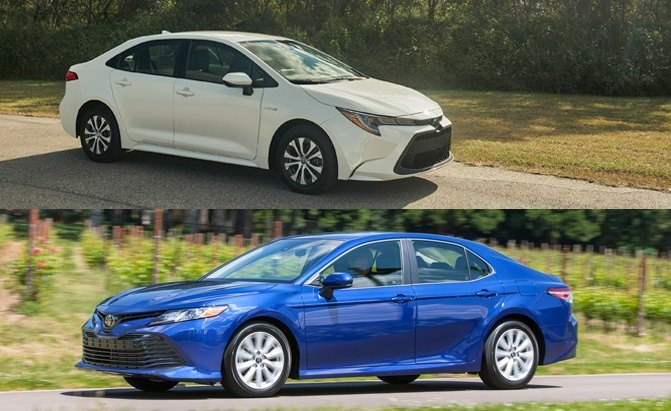







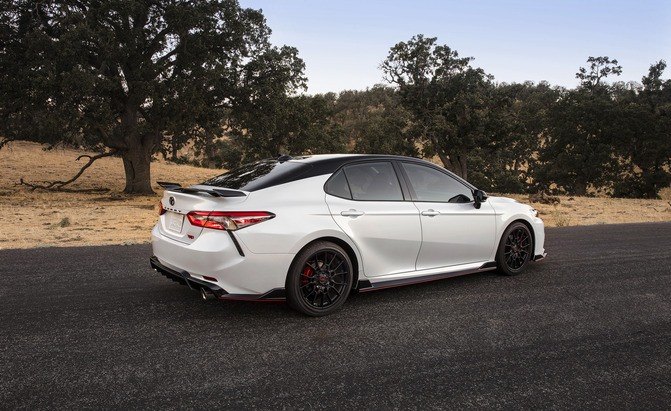







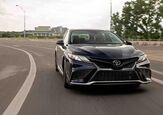







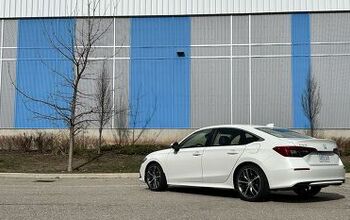
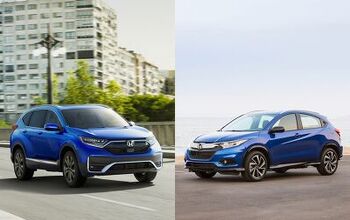
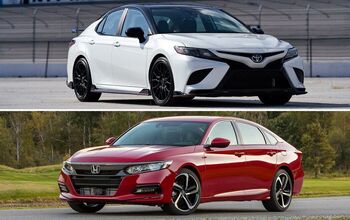
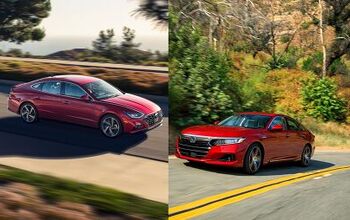
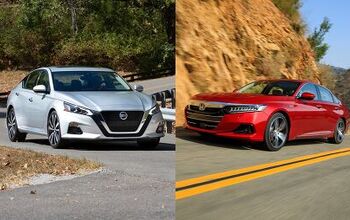
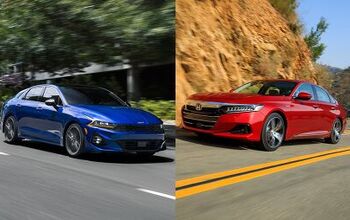
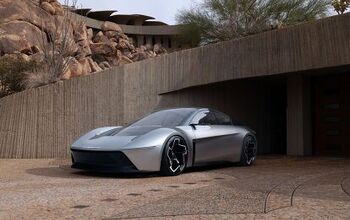


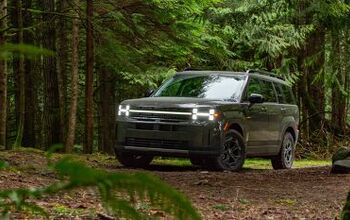

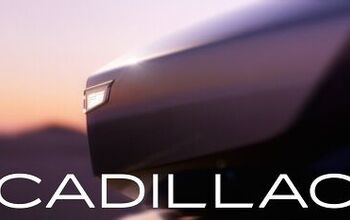
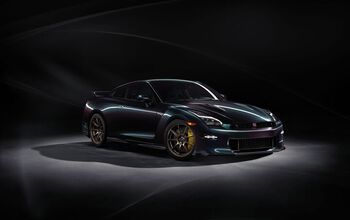
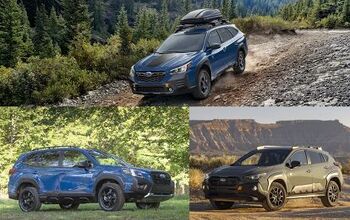
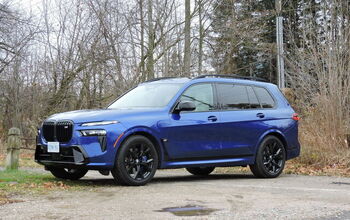
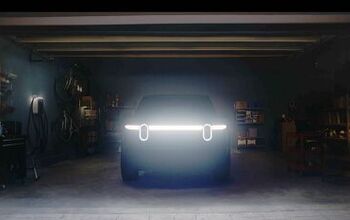
Comments
Join the conversation